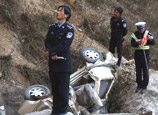
Recently,a series of events that happened in Middle East have eased the tension of the region: First, Iran announced that it would participate in six-party nuclear talks. Then on Feb. 5 Iranian President Mahmoud Ahmadinejad paid a visit to Egypt which marked the first state visit after the two countries suspended their diplomatic ties 30 years ago. After that, Syrian opposition called for dialogue with Syrian President Bashar al-Assad's leadership. Coincidentally, U.S. also declared that President Obama will pay a visit to Israel on March 20 to discuss the probability to restart the Israeli-Palestinian peace talks. Will the situation in Middle East calm down?
When talking about these issues, the US policy towards Middle East during Obama’s second term is an important point for analysis. Observing Obama’s first term, U.S. government carried out a low-pressure strategy in this region: withdrawing troops from Afghanistan and Iraq, ensuring no direct confrontations between Israel and Palestine, treating Syria and Iran with both repression and talks in order to maintain the moderate speed of “democratic revolution” in Middle East, hence, to give ways to U.S emphasizing its strategy in Asia-Pacific Area. This US policy may continue in Obama’s second term.
More important, since the Arab Spring started, the Islamic world hasn’t developed in accordance with U.S. interest. Instead, the Islamic extremists have enhanced their power because of the continuous instability. The United States has noticed the complexity of this problem and has slowed down its pace in Middle East.
Of course, the United States will not totally relinquish control of Middle East, which has been the focus of US foreign policy. Besides, the current situation does not allow the United States to withdraw from this region. As Robert Kagan, a senior fellow in the Center for the United States and Europe on Foreign Policy at the American think tank Brookings Institution said, “It is sarcastic that every time Obama’s government tries to turn its focus to Asia-Pacific it is pulled back by Middle East.”
Read the Chinese version: 美国“逃离中东”?, source: Jiefang Daily, author: Zhang Quan
















 Beast removal to new home: Chengdu zoo moves wild animals
Beast removal to new home: Chengdu zoo moves wild animals


![]()
